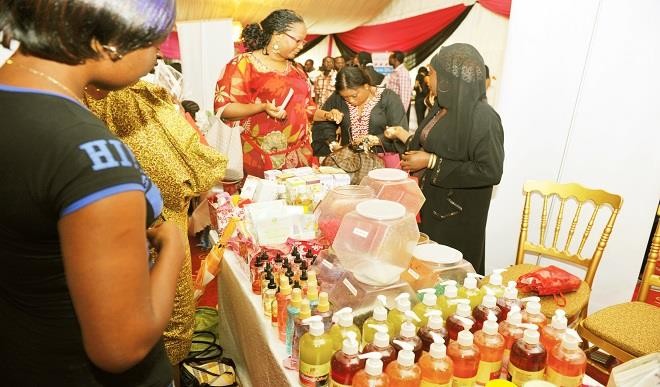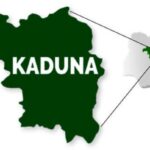
Mrs Abiola Olumodeji is the CEO of Natures Cosmetics Limited. She says the ban on forex for some products is a blessing as it is boasting sales of locally made products.
“We use lots of locally grown ingredients to formulate our cosmetics. Now that the prices of foreign items have gone up, Nigerians are looking inwards and are patronizing Nigerian made cosmetics. So, I believe the economic downturn is working positively for my business,” Olumodeji says.
Mrs Omololami Ajani, MD, Wood-et-al Limited corroborates this. “Our products are made in Nigeria and our furniture is one of the best in the country. There are times that our customers have bought our products but tell people they’re imported. That tells you the quality, and our patronage is increasing by the day.
The quality of wood in Nigeria is good,” she says.
The Central Bank of Nigeria (CBN) last year stopped commercial banks from allocating foreign exchange for the importation of 41 items and certain products it considered luxurious. Some of these items are wood particle boards and panels, wooden doors, toothpicks, glass and glassware, kitchen utensils, tiles-vitrified and ceramic, textiles, woven fabrics, clothes, plastic and rubber products, polypropylene granules, cellophane wrappers, soap and cosmetics, tomatoes/tomato pastes, poultry chicken, eggs, turkey, Sardine and Geisha to mention a few.
While the importation of these items is not prohibited or banned, it only means that importers of these items are no longer qualified to get foreign exchange from the CBN or the official market to buy the items from overseas.
This is to attract patronage for local products. This ban is already boosting the sale of made-in Nigeria and making Small and Medium Enterprises (SMEs) look inwards to produce more locally made products.
With a population of 182 million, Nigeria actually has a big consumer market that can drive SME growth.
Mr. Okon Abang said he used to buy imported shoes, especially the Paul Smith brand. “My taste changed last year when a friend at the Leather Technology College in Zaria insisted on making a shoe for me. The quality was high and 50 per cent less in cost than what I spend on foreign shoes,” he said.
While Mr. Abang has become a judge for himself, many still doubt the values of local products especially those that demand the use of high technology like cell phones and cars.
Mr. Ibrahim Shehu in Kaduna said the SUV built by Innoson Motors has been rugged for Nigerian roads but that many still prefer to go for Honda, Toyota and Ford SUVs that are quite expensive and have low heights.
“This habit will not help us to grow our economy at all. As for me, I research about the values of products and patronise local ones that I feel are good. I buy foreign products only if I don’t see their durable equivalents,” Shehu added.
An advocate for local products and Abuja-based businessman, James Elaigu, said if government can revive the textile companies and the many moribund manufacturing firms in the various states, the level of local patronage will increase.
“Before now, we were exporting textile prints to neighbouring countries. Suddenly, the structures and industries collapsed and the affordability of such products rose.
However, some Nigerians explain why they would buy a Nigerian made product: “If you want me to buy made-in-Nigeria product, packaging is as important as the content. If you want me to stop buying foreign hair product, then make the Nigerian brand of good quality as the foreign one.
Relevant data from the National Bureau of Statistics (NBS) and some international rating agencies show that consumer confidence, business confidence, competiveness and corruption ratings remain worrisome and affect image of Made-in-Nigeria goods and patronage.
The Central Bank of Nigeria (CBN) reported that Consumer confidence in Nigeria as at July 2016 dropped to minus 24.2 from minus 3 recorded at the end of last year.
In terms of competitiveness, the cost of manufacturing products in Nigeria is high and this results in high cost of finished goods when compared to goods produced in countries with better ranking on Ease of Doing Business Index.
Nigeria is currently occupying the 169th position on the Ease of Doing Business Index out of 189 economies.
The Minister of State for Industry, Trade and Investment, Aisha Abubakar, while receiving officers of ‘BuyNaija’ Initiative in her office recently, acknowledged that low patronage of locally made goods is affecting manufacturing in the country.
Abubakar attributed the problem to negative perception of products in the country and the manufacturers that compromise on quality, adding that government was working towards promoting positive brands of the country to increase patronage.
“The ministry would have a date for wearing made-in-Nigeria; we will speak with the president to schedule a day for wearing Made-in-Nigeria,” she said.

 Join Daily Trust WhatsApp Community For Quick Access To News and Happenings Around You.
Join Daily Trust WhatsApp Community For Quick Access To News and Happenings Around You.


